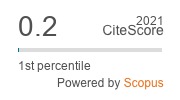Deep Learning: Its Empirical Study and Comparison in Heart Disease Prediction
DOI:
https://doi.org/10.17762/msea.v71i4.2037Abstract
Due to the impact of fast technological advancement and adoption of advanced lifestyle, the life of humans has become very comfortable and had completely changed, which ultimately is the reason for the rise in many cardiovascular diseases. During the past decades, the diseases caused by heart emerged to be the biggest reason of sudden and untimely death for many persons across the world. Since, its early diagnosis is still a challenge for a medical expert, therefore many researchers are applying various other techniques for its prediction. Since the application of Deep Learning has been widely applied for various other complex tasks, and had proved with its ability and potential to extract more appropriate and high level features, it gives a ray of hope to many researchers for helping the health care professionals. This paper conducts the empirical study of Deep Learning, and also compares it with various other classification algorithms of machine learning, to embark the early detection of the occurrences of heart disease. On the basis of the results obtained from this study, it is concluded that the Deep Learning emerges to be a better choice, in comparison to others, and have the capability to be used for the prediction of heart disease in a patient.




